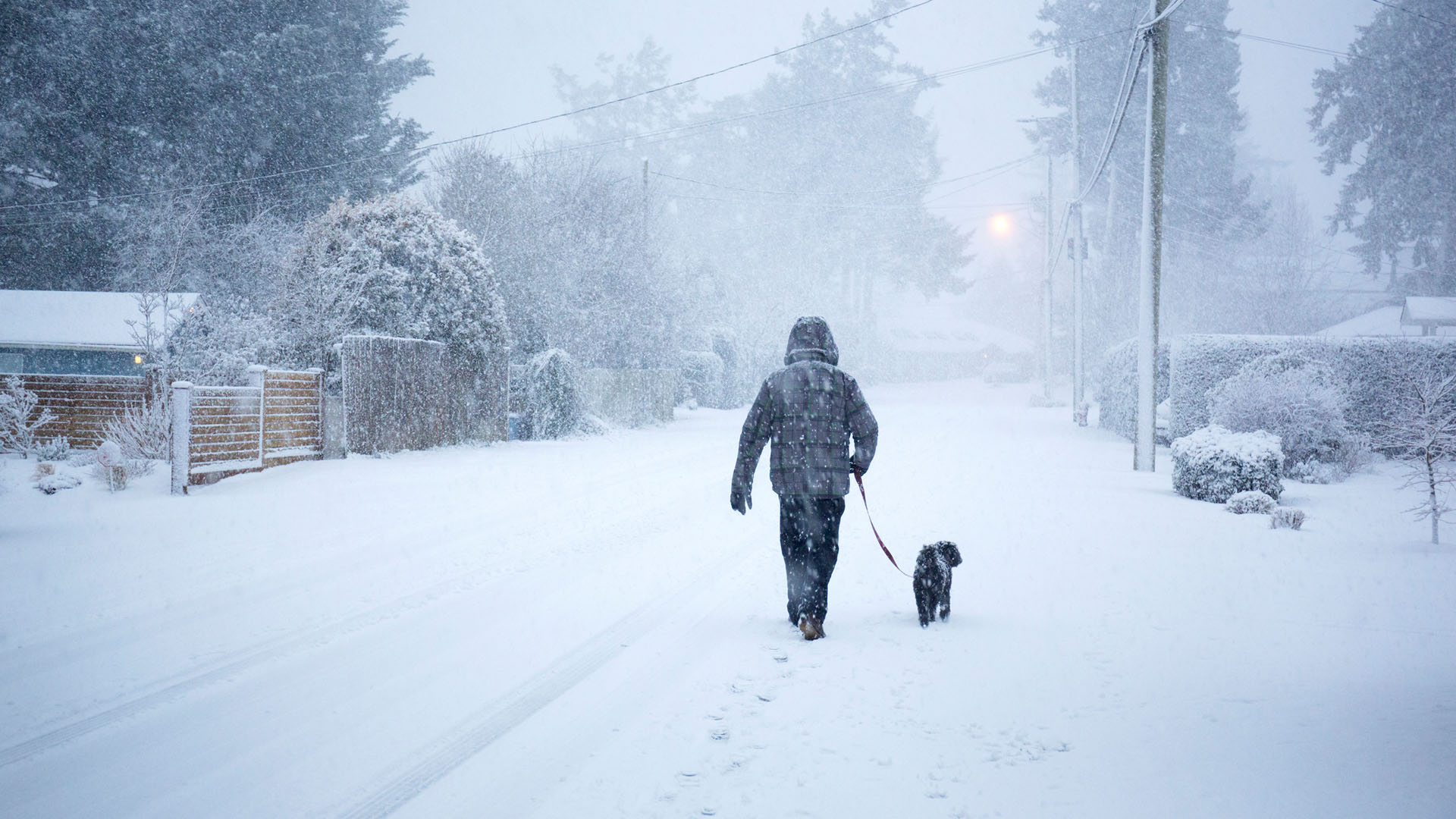Why are heart attacks more common in winter? A cardiologist explains
Colder weather can trigger a number of physiological changes that may increase the risk of a cardiac event.

Get the world’s most fascinating discoveries delivered straight to your inbox.
You are now subscribed
Your newsletter sign-up was successful
Want to add more newsletters?

Delivered Daily
Daily Newsletter
Sign up for the latest discoveries, groundbreaking research and fascinating breakthroughs that impact you and the wider world direct to your inbox.

Once a week
Life's Little Mysteries
Feed your curiosity with an exclusive mystery every week, solved with science and delivered direct to your inbox before it's seen anywhere else.

Once a week
How It Works
Sign up to our free science & technology newsletter for your weekly fix of fascinating articles, quick quizzes, amazing images, and more

Delivered daily
Space.com Newsletter
Breaking space news, the latest updates on rocket launches, skywatching events and more!

Once a month
Watch This Space
Sign up to our monthly entertainment newsletter to keep up with all our coverage of the latest sci-fi and space movies, tv shows, games and books.

Once a week
Night Sky This Week
Discover this week's must-see night sky events, moon phases, and stunning astrophotos. Sign up for our skywatching newsletter and explore the universe with us!
Join the club
Get full access to premium articles, exclusive features and a growing list of member rewards.
Cold weather is a challenge in itself, with travel disruptions, snow and ice making even the simplest tasks take twice as long. But winter also poses a risk to physical health for those who are at a higher risk of heart attack, angina or high blood pressure, because of the ways the body responds to the cold.
A 2021 study in the journal Medicine found that overall, U.S. cardiac arrests peak during December and January, although the exact statistics is difficult to determine. Live Science spoke to experts to find out why.
How does cold weather affect the heart?
So how does cold weather, and the body’s response to it, affect the heart?
Dr. Oliver Guttmann, a consultant cardiologist at The Wellington Hospital, part of HCA Healthcare U.K., told Live Science that cold weather decreases body heat, meaning the heart needs to work harder to keep the body warm. This can increase the chance of a cardiac event in people already at a heightened risk, such as people who smoke and the elderly, he said.
Cold weather also causes blood vessels to narrow around extremities such as fingers and toes, a process known as vasoconstriction, Guttmann said. The result is that the body’s core remains warm and the organs continue working. “With less blood going to extremities like your fingers and toes, there is more pressure to pump blood around the rest of the body,” he said. “[However] this means that your heart has to work harder, increasing both heart rate and blood pressure.”

Dr. Oliver Guttmann is a consultant cardiologist at The Wellington Hospital, part of HCA Healthcare U.K. and honorary associate professor at University College London. He has a special interest in chest pain management and coronary intervention, including angioplasty and stenting.
The additional pressure put on the heart due to vasoconstriction can cause fatty plaques that have built up inside arteries to rupture, Guttman said, which can block the blood supply to the heart.
In addition, colder weather changes the viscosity of blood, Guttman said. “When we are cold our blood thickens, which can also increase the chance of developing blood clots and consequently, having a heart attack,” he said.
Get the world’s most fascinating discoveries delivered straight to your inbox.
Blood coagulability is also increased, said Dr. Deborah Lee, a medical writer for Dr Fox Online Pharmacy in the U.K. Blood coagulability is the speed at which blood forms a clot and later a scab to prevent blood loss. “Cold temperatures have been found to cause an increase in blood fibrinogen levels – this is the major protein involved in blood clot formation,” she told Live Science. Blood clots increase the risk of heart attack.
Another possible cause for the seasonal increase in heart attacks is vitamin D deficiency, which is more prevalent over the winter months due to a lack of sunlight. Vitamin D deficiency has been linked to several cardiovascular risk factors. However, more research is needed to understand the underlying mechanisms, according to a 2018 article in the journal Clinical Hypertension.
A 2013 review in Current Treatments in Cardiovascular Medicine indicates that vitamin D may have a protective effect against cardiovascular disease, although the authors also said that more research is needed.
Risk factors
It’s difficult to quantify exactly how much the risk of cardiovascular disease increases in winter, according to a 2003 review in the journal BMC Cardiovascular Disorders, because cardiovascular and respiratory diseases are often related disorders, but either could be listed as a cause of death. Depending on what is listed, there can be a wide variation in statistics, from a 5% to 30% risk of death from cardiovascular disease across different studies carried out in different countries.
The wide range of increased risk in winter may also be because cold weather is experienced differently in different countries. For instance, the BMC Cardiovascular Disorders review found that winter mortality from cardiovascular disease is lower in Scandinavian countries compared with the U.K., which may be due to socioeconomic factors and healthcare systems. It could also be because Scandinavian countries are better set up to deal with cold weather.
A 2017 study in the journal BMJ Open looked at deaths and daily temperatures in Finland , and found that cardiac death increased by approximately 19% on "unusually cold days."
In the BMC Cardiovascular Disorders review, older patients admitted to hospital in November, December, January and February were 30% to 50% more likely to die from cardiovascular disease than those admitted in May. However, for the younger age group, there was no difference in death rates whichever month of the year they were admitted. Therefore, age may also be a risk factor.

Lou Mudge is a health writer based in Bath, United Kingdom for Future PLC. She holds an undergraduate degree in creative writing from Bath Spa University, and her work has appeared in Live Science, Tom's Guide, Fit & Well, Coach, T3, and Tech Radar, among others. She regularly writes about health and fitness-related topics such as air quality, gut health, diet and nutrition and the impacts these things have on our lives.
She has worked for the University of Bath on a chemistry research project and produced a short book in collaboration with the department of education at Bath Spa University.
 Live Science Plus
Live Science Plus










